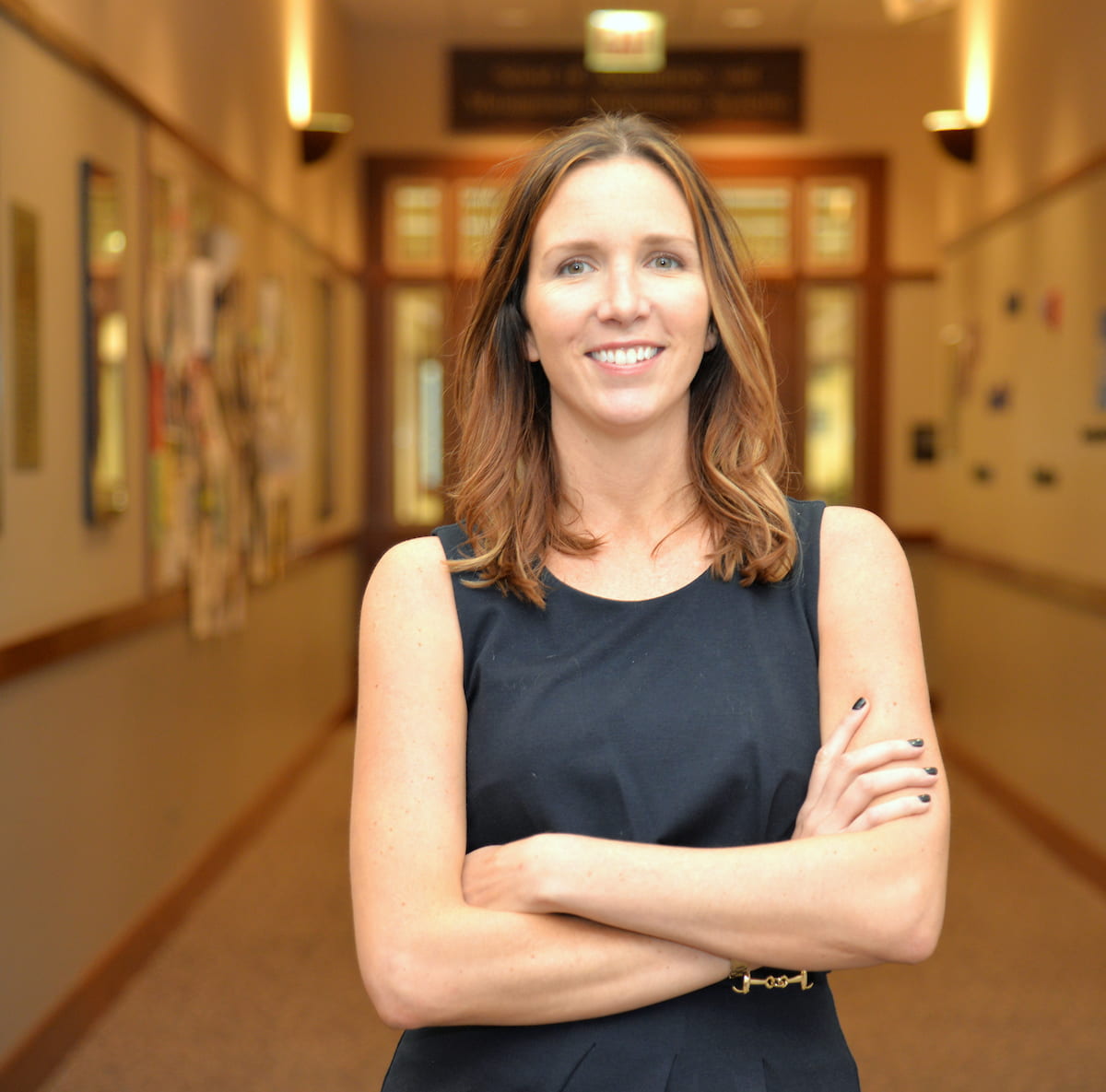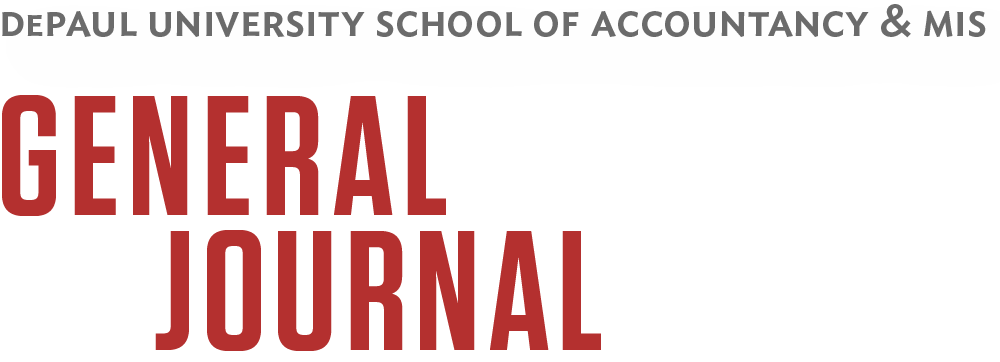
Associate Professor Christine Gimbar is one of those faculty members who always steps up to volunteer for a project in the School of Accountancy & MIS when it involves students. You’ll often find her at the helm of school case competitions, like the Ledger & Quill case competition she led in October 2021. “I love running these events and try to be involved in every single one,” she says. “Getting to interact with students outside of the classroom is so fun—I love it.”
Gimbar has been busy for the last year and half working on a big initiative that will have a lasting impact on DePaul’s accounting students. She’s chair of the school’s CPA exam task force, which formed in summer 2021 to examine and revamp how the school prepares students for the CPA exam—especially in light of the changes coming to the exam.
“The changes, no doubt, affect the way we teach our students, so we need to keep abreast of those changes and evolve our approach accordingly,” Gimbar says.
DePaul’s accounting students and alumni have an exam pass rate averaging around 70%, but Gimbar says, “Regardless of what our pass rate is, whether it’s 70% or 95%, you can always improve your pass rates. That’s what got me on board—we need to do something to help our students.”
Led by Gimbar, the task force has accomplished many goals over the last year to make preparation for the CPA exam more seamless and integrated into the student experience at the school. One win was creating a partnership with an external service and publisher—Wiley—which offers CPA prep courses. The partnership provides a discounted rate for DePaul students to access Wiley’s CPA prep resources and courses. At the same time, students can now use the credit they earn as part of these Wiley courses toward their required credit hours to sit for the CPA exam.
“This is huge because instead of having students gain the extra credit hours by taking some random electives, they can now use those hours in a way that helps them toward the CPA requirement,” Gimbar says. “The Wiley course is online so students can do it in their own time, but what we’re giving them to supplement is a meeting once a week with a professor so they can get support on things they may be struggling with in the course.”
Another initiative to come out of the task force is a new CPA workshop program for students. The workshop is hosted quarterly and invites a representative from the Illinois Board of Accountancy to come answer questions and provide information to students.
The task force has also been working with department committees within the school to make sure faculty members are actively integrating more CPA exam questions into regular courses, including exam questions, quizzes and any other tests, and to let students know that these are old CPA exam questions so that they are well-prepared in knowing the CPA exam style.
Lastly, at the graduate level, the task force has been working on implementing a new systems and controls course—a topic that the new CPA exam promises to emphasize. “We pride ourselves on saying that we prepare students to take the CPA whether or not they want to or plan to,” Gimbar says. “The fact is people change their minds all the time, so it’s better to be prepared for whatever the future may hold. I personally feel fulfilled knowing that we are keeping our promise to do everything we can to see our students succeed.”
Gimbar’s Recent Research Sheds Light on Staff Auditor Behavior
Christine Gimbar is shaping industry insight as well and students’ futures through her expertise in auditing. A behavioral accounting researcher, she often runs experiments to examine auditor behavior in various situations. Her most recent publication, “Auditor-Client Interactions—An Exploration of Power Dynamics During Audit Evidence Collection,” is forthcoming in Auditing: A Journal of Practice & Theory. It concerns how auditors handle negative or uncomfortable client interactions. In the study, Gimbar and her co-authors, Melissa Carlisle and J. Gregory Jenkins, found that staff auditors will go so far as to avoid clients and revert to ghost ticking—the act of reporting an audit procedure they didn’t actually do—if they perceive that the interaction with certain clients will be an unpleasant experience for any number of reasons.
“While past accounting literature shows that clients maintain the upper hand on audit engagements, we were able to identify specific types of power that auditees hold over their auditors,” Gimbar says. “So, despite regulatory changes and attempts to enhance auditor independence, we show that clients continue to steer many aspects of audit engagements. To my co-authors and I, the most surprising outcome of this power was the reported use of ghost ticking. And, even more, that participants were actually willing to admit to it. That really surprised us.”
By Nadia Alfadel Coloma
